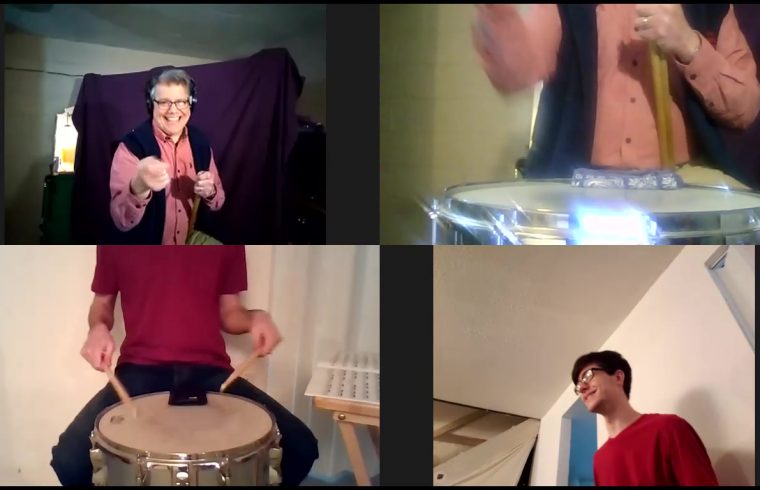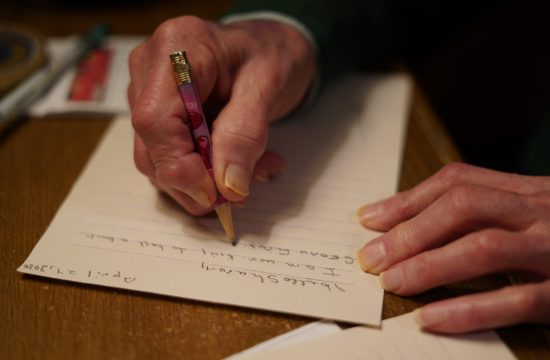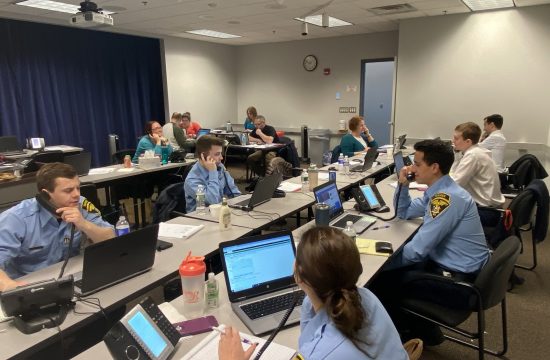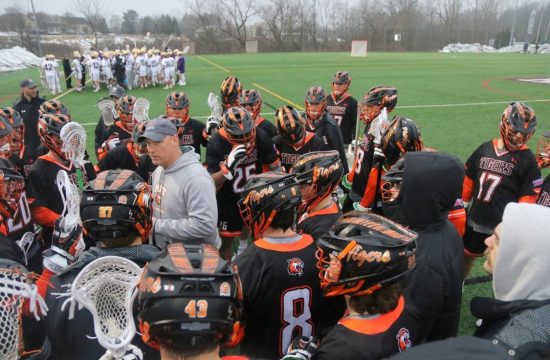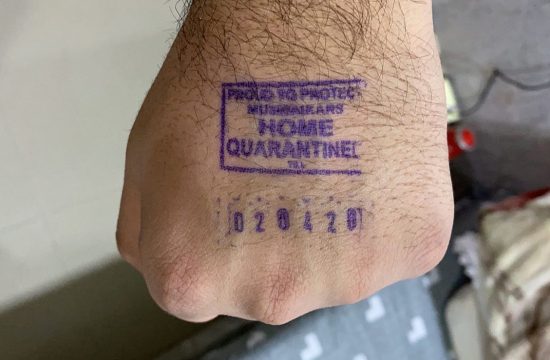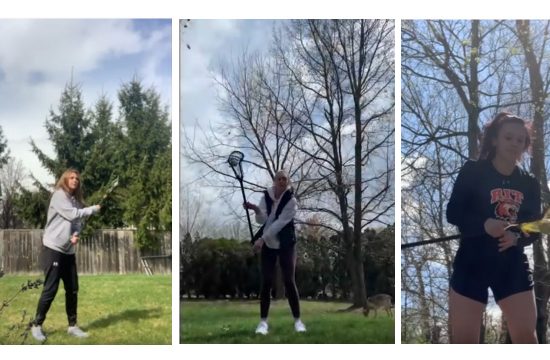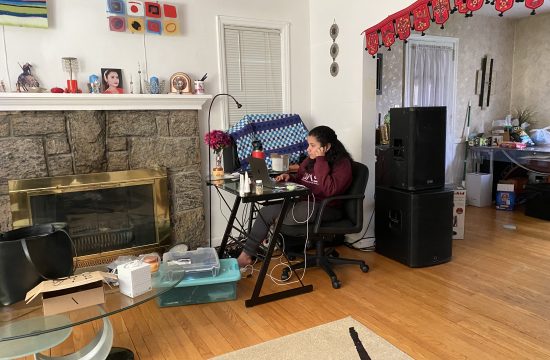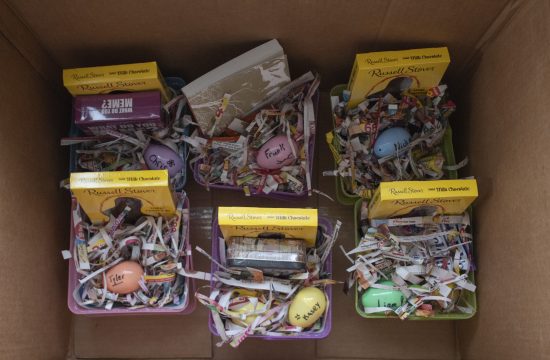by Edward Brydalski
When you think: “RIT,” the first things that come to mind might be computer science, RITchie the Tiger, or college hockey. However, RIT’s array of ensemble music groups are equally important parts of campus life to many students every year. But with the arrival of Covid-19 and the closure of RIT’s main campus, many music programs have had to adapt to online methods or fall by the wayside.
Join me in understanding how four different professors have dealt with maintaining music ensembles from across a quarantined country.

Professor Ted Canning is the director of the Steelband Ensemble and Director of Percussion for the College of Liberal Arts. His ensemble class was severely limited by campus closure.
“Since corona hit, live music ensembles can’t get together in the same space to play music,” Canning stated, “and the technology does not seem to allow for synchronous playing; plus the instruments for this particular ensemble are not instruments people would have in their own home.”
The size and specificity of steel drums seems to be the class’ downfall. “People don’t have their own instruments, so lending them out to people far flung across the country is just impossible,” Canning stated. As a result, Professor Canning was left with one option: assigning the class a “provided curriculum on basic wellness on stress management and diet and health.”
However, Professor Canning has been able to successfully provide percussion lessons over Zoom to students enrolled in his lessons through the College of Liberal Arts. “I have a couple students including one in Hong Kong,” Canning stated, “they’re going okay.”
His main problem practicing online? “Synchronicity; being able to play something at the same time as someone else,” Canning stated, “Certainly for me and for any ensemble music it is the crux of the whole problem. Online, of course, there’s always a little bit of delay; it’s never perfectly synchronized.” In addition, he stated that “sound quality is drastically reduced” when playing online. “in music that is so much more important.”
As a result, Professor Canning’s percussion lessons have been restricted to “the student plays something, I comment on it and maybe I play it for them, and they listen.”
Professor Wardell Lewis has been the Director of RIT’s Gospel Ensemble for the past 36 years, and he’s taken simple steps to keep the soul of his group alive.
As the Gospel Ensemble is a wellness course, Professor Lewis has the option to use the given basic wellness curriculum; same as Professor Canning’s Steelband had. However, Professor Lewis chose to create a more apt course replacement consisting of three assignments: record your assigned vocal part of “Walk together, Children don’t you get weary” and submit it to Professor Lewis, listen to “Don’t Cry” by Kirk Franklin and write a paragraph about what the song meant to you, and finally pick one of the six songs you previously performed at the Rochester Public Library and write about why it’s special to you.

While these assignments were apt given the circumstances, Professor Lewis still missed his live practices, stating, “In order to get a group of singers to sound well, you need to be able to hear each other to be able to blend. That’s probably what I miss the most about not having rehearsals.”
He also brought up the now missing communal aspect of the Gospel Ensemble, stating, “For some people it may be the major social interaction that they have… It’s very very important to a lot of folks.”
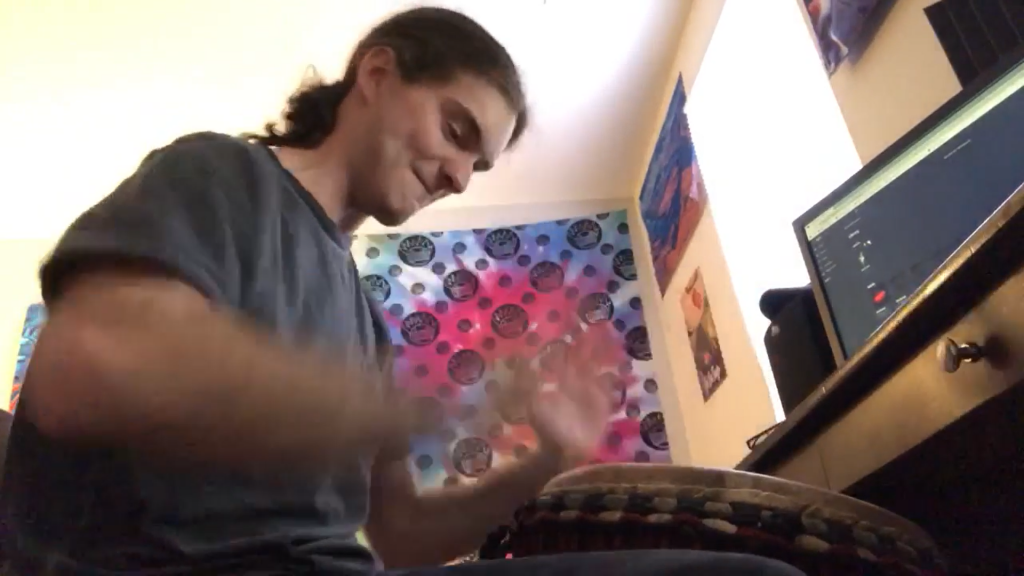
Professor Kerfala Bangoura is the director of the World Music Ensemble and a New Guinean certified master drummer. When RIT campus was suddenly closed, he turned to his students for ideas.
“Students decided I record myself breaking down parts, put on YouTube, and send to them so they can practice and do themselves to then send it back to me for correction,” Bangoura stated. “When I record myself playing the parts, I think when they watch it back and forth, that will have done it the most.”
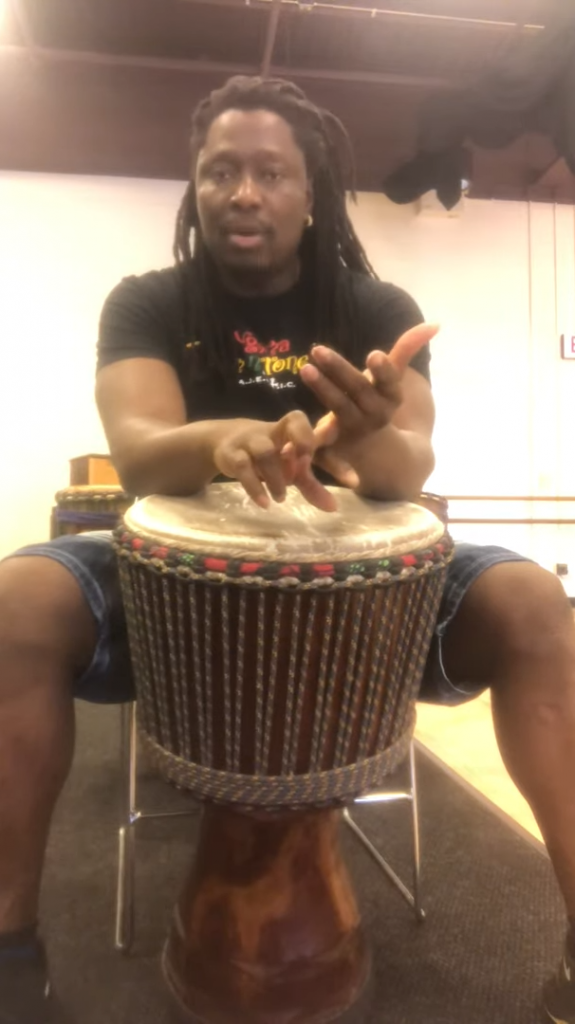
However, even with the lesson methodology figured out, Professor Bangoura shared the same base problem that Professor Canning had: How do we give students living across the country instruments to practice with? “For drumming class you need a drum in able to practice, so for me to be able to do that I need to give drums to all my students,” Bangoura stated, “But some people were already home and (RIT) emailed them not to come back, so these people are not included in what we are doing right now”
“Only students living down here in Rochester, I was able to give drums to those students so they can practice, and that’s just two students.”
Fourth-year computer science major Steve Greene was one of two students in the World Music Ensemble to be given a djembe drum for practice.
“The main thing I’m getting out of it is I can still practice,” Greene stated, “With or without the instruction I have the equipment here”
However, Greene missed the group aspect of practice, stating that “working with people in the group and being able to play as a whole, I think it’s the most important part… with this one on one strategy we’re doing now, I don’t get that.”
But despite having to practice alone, Greene still appreciates his teacher, stating, “He’s probably one of the best US based djembe teachers period… You’re not gonna go to Guitar Center and find a Guinean master drummer!”
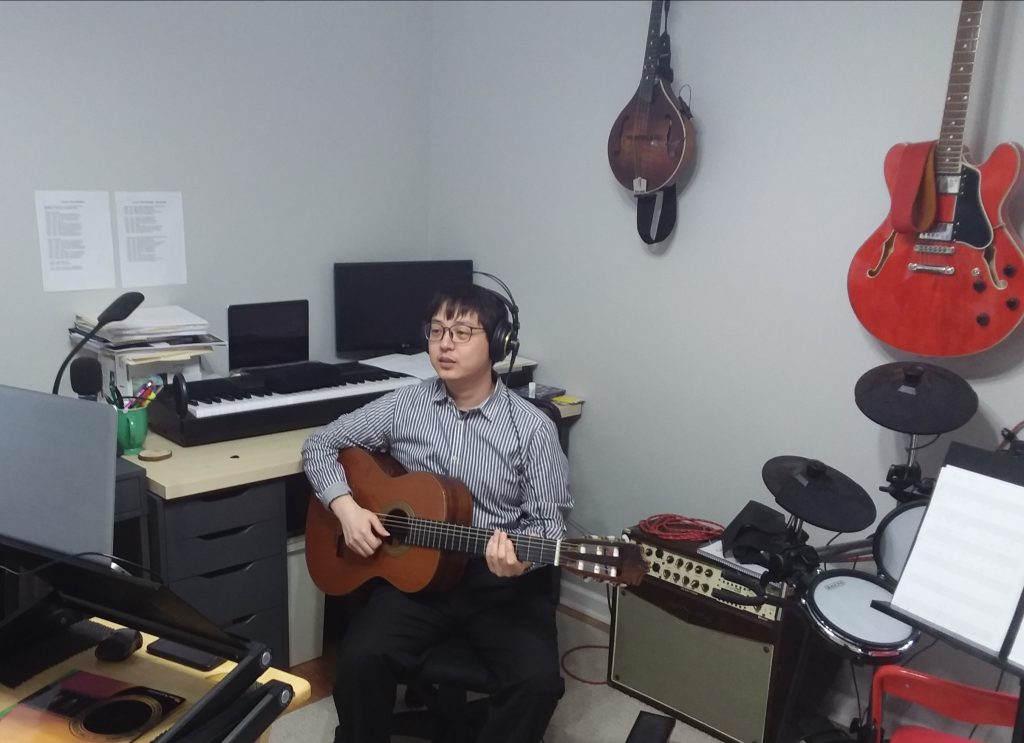
Professor Sungmin Shin is the director of the Guitar Ensemble, an adjunct professor with the Department of Performing Arts, and a private guitar instructor working between Western New York and Toronto, Canada. He was able to use his experience with online guitar lessons to smoothly transition the RIT Guitar Ensemble and RIT guitar lessons to an online format.
“I started lessons immediately after Spring Break and I was already all set up to deal with the Skype situation,” Shin stated, “I think everyone agrees that (Skype lessons) don’t replace in person interactions, but it’s been pretty positive” According to Professor Shin, the only thing missing from this year’s guitar lessons is the “end of semester performance for the class.”
For the ensemble class, he has taken a similar approach to Professor Bangoura, stating, “we’ve been doing recorded lectures; I’ve recorded a bunch of video lessons” Instead of practices being done together in a room, they are now done on the students’ own time.
“We do six assignments throughout the semester: six songs that get progressively more difficult,” Shin stated. Practicing these songs is now left to the students to do on their own time, with final demonstrations being done in a quite familiar format. “Usually when we do it in person, we set aside an assignment date where they come and see me one on one and do the assignments for me… with the transition to online, it’s changed to them submitting videos of their performance.”
Despite the familiarity of the format, Professor Shin still realizes the advantages of the in-person system, stating, “Regular class time has disappeared, so students forget… for many of us we forget what day of the week it is; not having the routine.”
Despite the pessimal working conditions, these professors have done their best to provide functional online education, even if voice-over-I.P. services like Zoom don’t yet support high quality audio and low-latency video. It still seems that effort, creativity and the good old-fashioned manipulation of freely available resources can get the job done.

